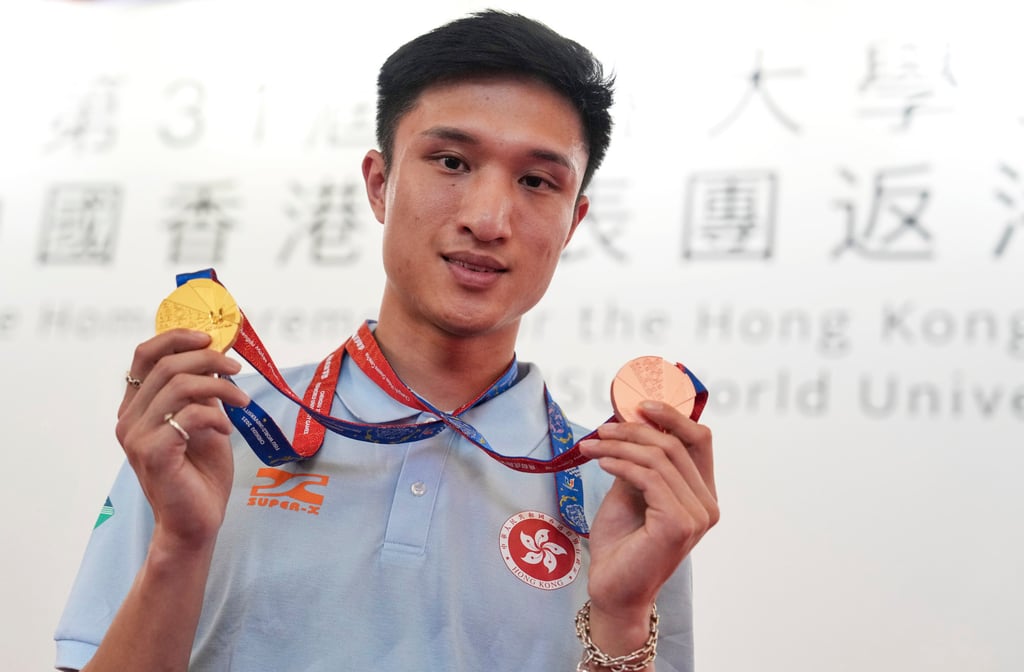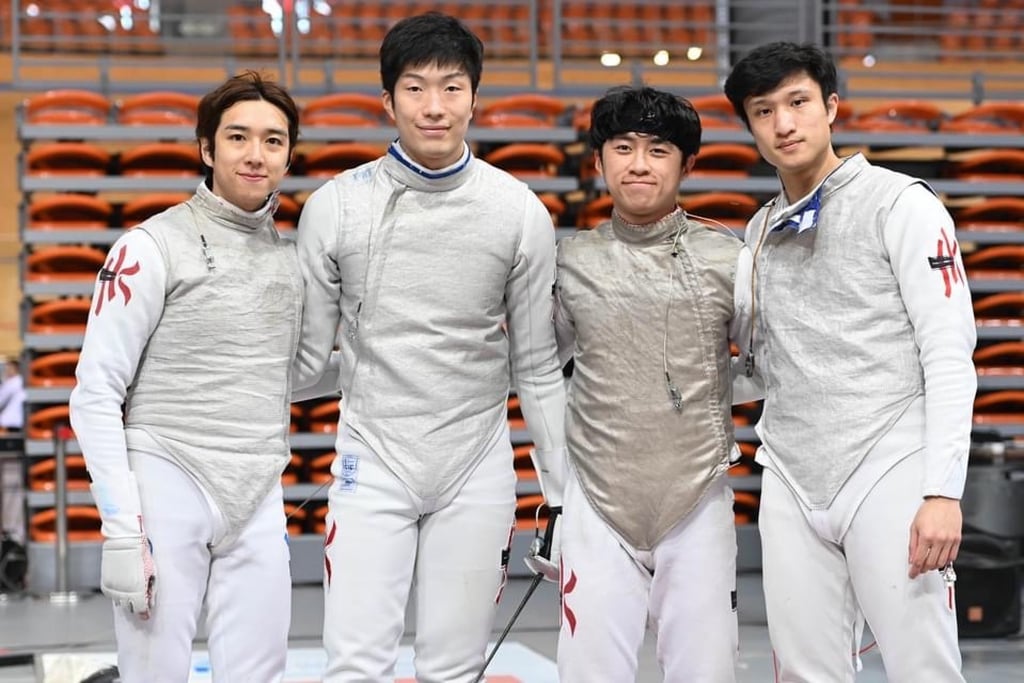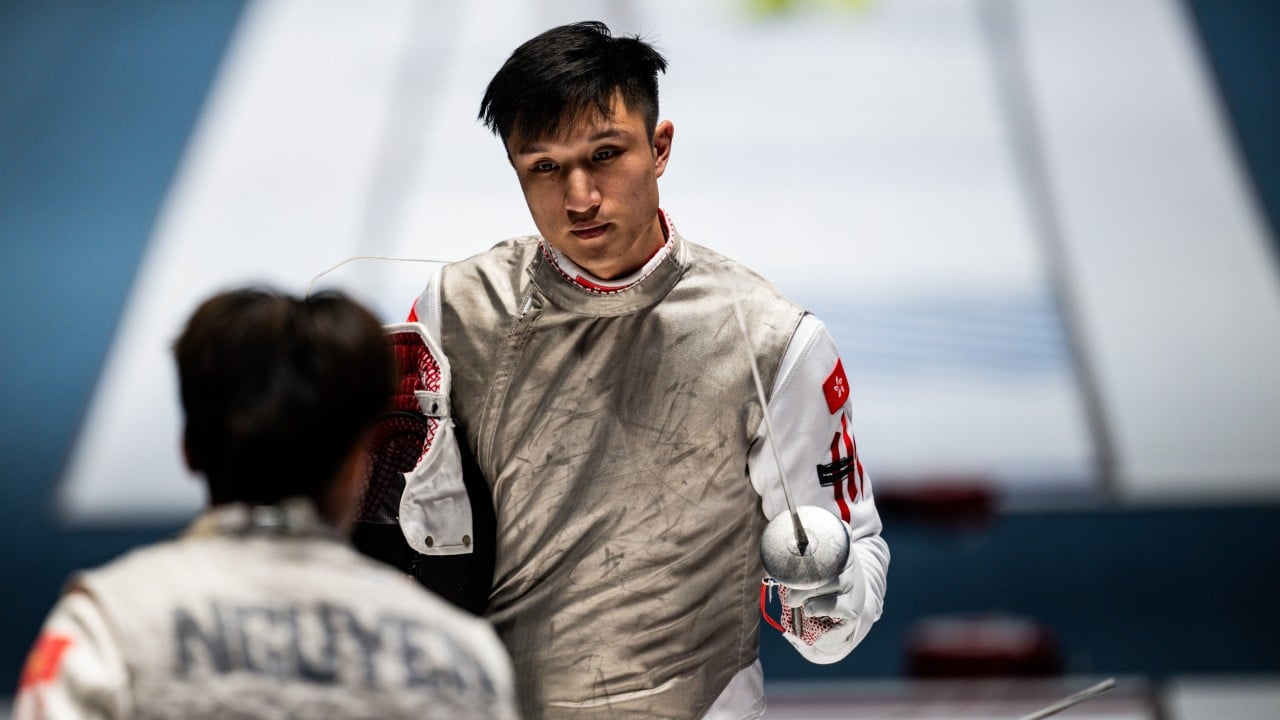A Hong Kong fencer has sparked a debate on whether authorities should cover athletes’ international competition fees after exposing the financial burdens faced by elite sportspeople relying on entry-level subsidies.
Elite foilist Ryan Choi Chun-yin posted on Meta’s Threads on Tuesday a breakdown of the yearly expenses for taking part in overseas tournaments and how athletes living on the entry-level HK$7,130 (US$915) monthly subsidy would only be left with about HK$30,000 annually.
While Choi clarified the expenses listed were not his but rather belonged to other teammates, some internet users expressed shock upon learning that the city’s elite athletes had to pay their own way to international races. Some others bemoaned the financial pressure on athletes.
“I thought authorities covered competition expenses,” one user said.
Others expressed concern over the quality of athletes’ daily life.
Choi deleted all the posts on his Threads account on Wednesday and declined to comment further.
The foilist also suggested an estimate of HK$5,690 to HK$12,000 to cover accommodation, flights, food and entry fees for each of the six international tournaments throughout a year.
Assuming athletes did not dine out throughout the year and had all their meals for free at the Hong Kong Sports Institute which also provided them with free accommodation, Choi concluded that those living on the entry-level subsidies would only have HK$30,260 left a year after covering the fees of the overseas tournaments.
He said most athletes had to shoulder competition costs themselves, except the top-level ones, adding it would be meaningless for a sportsman to stay in the city and not compete internationally.
According to information from the institute, the monthly allowance of full-time elite athletes yet to achieve top-level gaming results is as low as HK$7,130.

Monthly payments to elite athletes would vary according to their performance in the last two years, with those who have attained top results at larger international tournaments being granted more generous sums.
The top category, Elite A+, qualifies for a HK$44,500 monthly handout. Athletes in this category have to be Olympic medallists or World Cup champions.
While a fencing coach and a sports academic agreed there was room for authorities to boost monthly handouts to elite athletes, both said the city’s national sports associations and the sports institute ran on a set budget with a variety of services to cater to.
Francis Lee Wing-keung, former sportsman and founder of Hong Kong’s Academy of Fencing, told the Post that it was impossible for the city’s fencing association, which is responsible for the promotion and development of the sport, to fund all athletes’ competition fees.
The coach said that to his knowledge, the association ran on a set sum of funding from the government with its duties encompassing both elite training and public promotion.
Lee said the city currently had 144 fencers in the institute’s elite training programme, as the top eight of each fencing event across three disciplines, three age groups and both genders would be chosen.
“If each [athlete] takes on three competitions, that will amount to more than 400 tournaments. Would the sum given to the association be enough to cover 400 to 500 competitions? It won’t be, for sure,” Lee said.
The coach also cautioned that such payouts were not salaries but “incentives” meant to push athletes to work towards better results, adding that performance-based amount differences were justified.
“There needs to be motivation for [athletes] to do better, and that if you don’t, you will be eliminated. That is the system’s aim,” Lee said.

But the former athlete said the costs listed in Choi’s now-deleted post were “very true” and urged the government to listen to athletes’ concerns.
Lobo Louie Hung-tak, associate head of the Education University of Hong Kong’s health and physical education department, said the current elite athletes funding model had failed to take into account drastic cost differences between various sports disciplines in the city.
Louise cited fencing, windsurfing and sailing, which require expensive equipment, as well as training locations that could span from mainland China to Europe, highlighting that costs for different disciplines “cannot be cast uniformly”.
“If the government adopts a more comprehensive and flexible proposal, then I think everyone would be happier,” Louie said, adding that a 20 to 50 per cent increase in the institute’s current HK$1 billion endowment would be “reasonable”.
The scholar said he was optimistic the government might raise the city’s sports governing body’s funding in its coming review, saying authorities had recognised the impact of sports in uniting Hong Kong.
The Post has reached out to the institute for comment.


